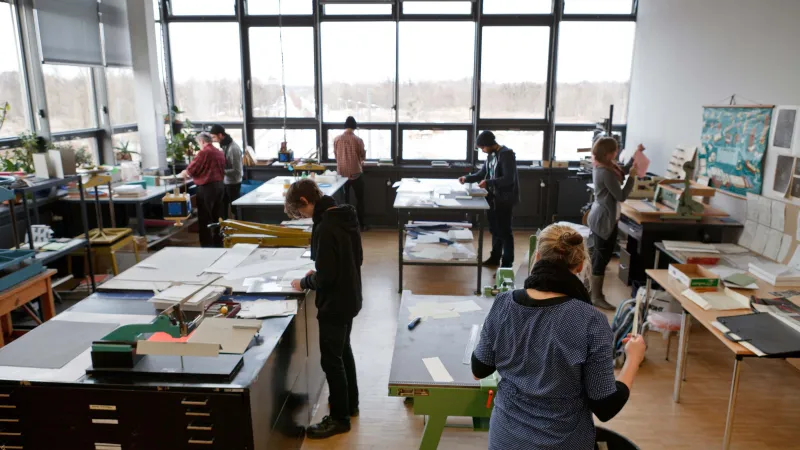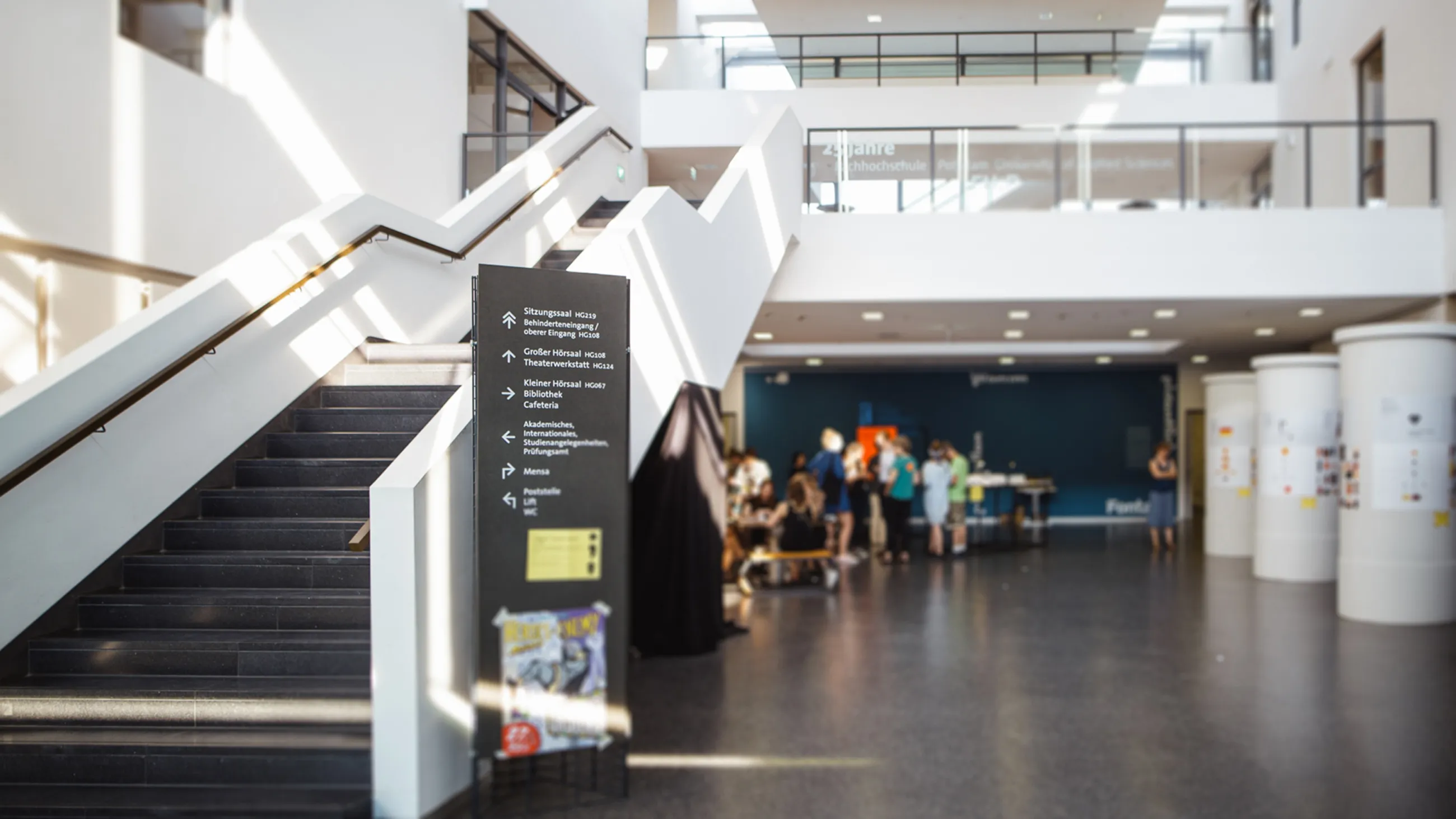Profile of the University of Applied Sciences Potsdam
The University of Applied Sciences Potsdam feels particularly committed to advancing social development through the interdisciplinary combination of its range of subjects in the profile lines "Digital Space – Data, Interaction, Knowledge", "Social Space – Education, Participation, Community" and "Built Space – Design, Construction, Preservation" in a perspective of study and teaching, research, transfer and continuing education both regionally and in an international orientation.
Profile lines
As a result of our research activities, three profile lines have been established, which address societal challenges and future issues across disciplines.
The profile lines support research-based learning at the University of Applied Sciences Potsdam, especially in the research-oriented master's programs Urban Futures and Early Childhood Studies.
Digital Space – Data, Interaction, Knowledge
The research focus "Digital Space – Data, Interaction, Knowledge" develops digital visualisation and interaction formats for the sustainable development of urban regions.
Social Space – Education, Participation, Community
The research focus "Social Space – Education, Participation, Community" examines individual and social behaviour as well as participation and involvement in order to enable people to actively and responsibly shape the future.
Built Space – Design, Construction, Preservation
The research focus "Built Space – Design, Construction, Preservation" develops sustainable concepts for urban development, urban planning, planning and building preservation.
Interdisciplinary study & research
The close relationships with partners from the region, as well as from Germany and abroad, enable practice-oriented studies at the University of Applied Sciences Potsdam from the very first day. Innovative teaching and research formats give students the opportunity to work together with fellow students and teachers from different departments and study programs. Under the guiding principle of "research-based learning", students can familiarize themselves with the methods of application-oriented research at an early stage.

Experienced, dedicated faculty, staff, well-equipped laboratories, workshops, and event rooms, a modern library, and interactive communication and learning platforms provide excellent conditions for efficient, hands-on study. Students are also allowed to participate in the courses of all Brandenburg universities.
Central and decentralized student advisory services, an International Office and the Central Institution for Start-Up Services and Management Qualifications support students on their way to a successful professional life by providing advice and continuing education.
Not least, the University of Applied Sciences Potsdam also benefits from its location: Potsdam is one of Germany's most important science locations, a city of culture and nestled in a beautiful lake landscape. And the center of Berlin can be reached in about 30 minutes.
